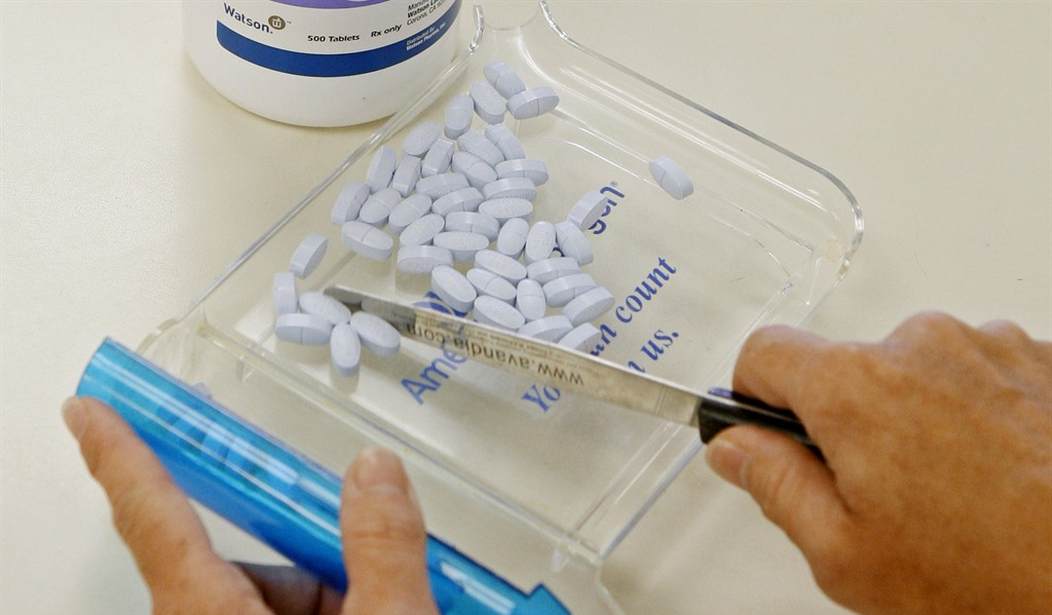It is exceedingly rare to see credible bipartisan legislation in Congress on a major issue facing the country.
We are now two years into a global public health crisis, and while we continue to deal with subvariants and protecting our vulnerable population, we should also begin preparing for the next global pandemic.
How bad is the U.S. medical supply chain?
The U.S. is increasingly reliant on foreign manufacturing, which has led to a tripling of the drugs reaching the ‘shortage’ category, as defined by the Food and Drug Administration (FDA).
These drugs include generic injectables and aspirin, among many others.
According to David Sanders, vice president of Coherus Biosciences, “Globally, more than 80% of our acetaminophen, our statins, our needles and syringes, and our active pharmaceutical ingredients (API) come from one of only two countries. In short, we need more U.S. and ally production.”
Fortunately, bipartisan, bicameral legislation rightly aims to achieve multiple important goals at once:
1. Improve medical supply chain security
2. Reduce U.S. dependence on China for pharmaceutical supply
3. Foster U.S.-made manufacturing of products, devices, and personal protection equipment (PPE)
To address this growing problem, eight months ago a new coalition launched called Securing America’s Medicines and Supplies (SAMS), made up of global life sciences and technology companies.
The Biden administration has issued executive actions through their Made in America package intended to boost domestic production and improve the resiliency of the U.S. supply chain. Additionally, the Centers for Medicare and Medicaid Services’ (CMS) has proposed to increase payments for hospitals when they purchase American-made N95 masks. Incentives affect behavior. These are positive steps, but more needs to be done.
Recommended
Bipartisan legislation, if it can pass through both the House and the Senate with roughly six months left in the legislative year, would go further, and enshrine these policy changes into law.
This coalition, SAMS, is advocating for “trade and tax reforms to encourage domestic manufacturing, the expansion of U.S. purchase agreement programs for important medical infrastructure, novel opportunities to promote U.S.-made pharmaceuticals, and measures to strengthen procurement to the strategic national stockpile (SNS).”
Earlier this year identical legislation was introduced in the U.S. House by Energy and Commerce Committee members Angie Craig (D-MN) and Markwayne Mullin (R-OK) and in the U.S. Senate by China hawk Tom Cotton (R-AR) and Tina Smith (D-MN).
“We know that depending on foreign countries for key resources – whether it’s oil or medicine – leaves us vulnerable to global supply chain shocks and shortages,” said Smith. “This bipartisan legislation would reduce our dependence on foreign pharmaceutical manufacturing and help boost production here at home. I look forward to getting this bill across the finish line so we can relieve prescription drug shortages and build more resilient supply chains.”
“Shortages in the medical supply chain are a matter of life and death, and we cannot rely on China for our citizens’ survival,” said Cotton. “Our bill will encourage pharmaceutical production in friendly countries and end dependency on the Chinese Communist Party.”
The American Made Pharmaceuticals Act has rare qualities: It is strategic (undermining and isolating our great power adversary China), it is responsive to crisis (supply chain backlog), and it would directly benefit American employers, workers, and consumers.
If signed into law, it would secure the supply chain and grow American manufacturing jobs by incentivizing the preference of generics, biosimilars, and critical medicines made in America.
One of the most powerful tools is utilizing the purchasing power of Medicare to prioritize products made here and in allied countries.
The bill would direct the Secretary of Health and Human Services to conduct a demonstration program to test providing preferential treatment under the Medicare, Medicaid, and CHIP programs for certain drugs and biologicals manufactured in the United States.
Once developed, it will create powerful incentives for U.S. production, which will stimulate demand and thus will stimulate supply and create a virtuous cycle.
America should never be held hostage for medical supplies and products by a supply chain backlog or a hostile foreign power.
We can prevent future drug shortages and directly address rising drug prices – goals that Republicans and Democrats in Washington share.
Here's to hoping that the Biden White House and this bipartisan group can partner to bring this legislation to passage before the end of the year.
“American made should never be controversial. Our country now has an opportunity to learn from the lessons that the Covid pandemic taught us, and we should follow through with legislation to secure the medical supply chain,” said Sanders.
Matt Mackowiak is the president of Potomac Strategy Group, a Republican consultant, a Bush administration and Bush-Cheney re-election campaign veteran and former press secretary to two U.S. senators.

























Join the conversation as a VIP Member